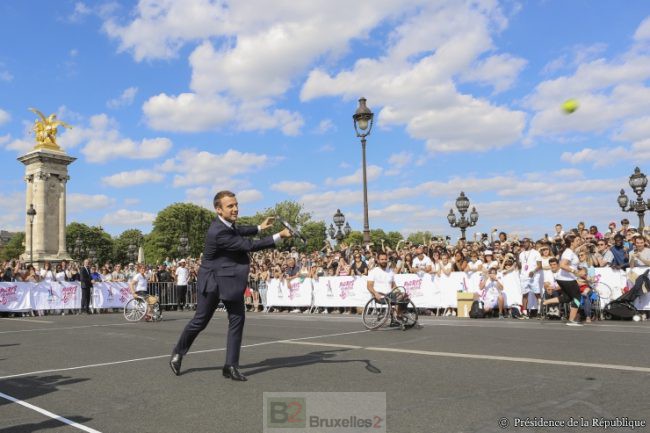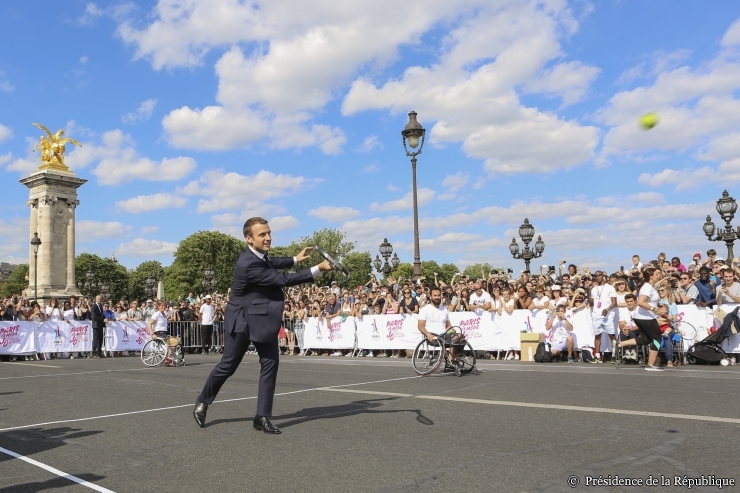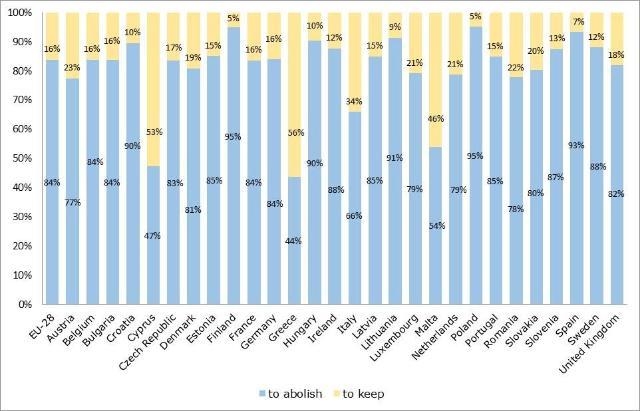President Macron, the SpitzenKandidat and the European Parliament
 (B2) French President Emmanuel Macron is definitely not on the same wavelength as the European Parliament, at least on two highly debated issues in the context of the next European elections (May 2019) (1).
(B2) French President Emmanuel Macron is definitely not on the same wavelength as the European Parliament, at least on two highly debated issues in the context of the next European elections (May 2019) (1).
The Spitzen Kandidat system
While the President had declared himself not to be in favor of the SpitzenKandidat system (for the election of the President of the Commission), Parliament has just quite abruptly confirmed its support for this procedure (read our article: MEPs not super enthusiastic about transnational lists and communicated of Parliament). And while the President on the contrary supported the system of transnational lists, Parliament has just abandoned it in the open countryside.
An ambiguous position vis-à-vis European political groups
In fact, this discrepancy reflects the ambiguous position of the French President vis-à-vis the European political groups. The brand new presidential party La République En Marche (LREM) has so far refused to ally itself with any of these groups - without however formally deciding to gather a new one around it. It is probable - and quite logical - that he will only position himself after the election and according to his result: there would therefore be no Spitzenkandidat "En Marche" at the time of the French vote. Where we see that "the Macronian revolution" also affects the European political scene - without it being yet possible to discern the effects...
The SpitzenKandidat: a choice shared between Parliament and Council
If we are familiar with the arguments in favor of the system of SpitzenKandidat, it is all the same necessary to take account of the rules fixed by the Treaty which do not envisage at all this kind of direct election of the President of the Commission through that of the European parliamentarians. The choice of the President is, in fact, shared between the European Council (which proposes) and the Parliament (which decides) - the two institutions being, in a way, condemned to find an agreement.
A non-existent legal basis
We cannot legally ask the Council to link its choice (i.e. that of a qualified majority of its members) in advance to exogenous considerations such as the nomination of a candidate by a political group - or even the outcome of the elections. The same reasoning also applies to Parliament as an Institution.
In fact, the system of SpitzenKandidat refers to a practice of well-established national parliamentary democracy (2). It remains to be determined whether European democracy is mature enough to transpose this practice on its own scale.
More precisely, the central question is whether the European political groups have been able to acquire sufficient legitimacy, authority, notoriety, homogeneity to play the role to which they aspire... The question can indeed be asked.
(Jean Guy Giraud, columnist)
(1) A point that he will be able to discuss and explain when he comes to Strasbourg on April 17 for the Parliament's plenary session.
A parliamentary practice
Contrary to what one might think, this practice does not lead to the party that came out on top being placed directly in the chair of the European Commission. It is a principle with several stages. First, the political parties agree that their candidate for the European Commission is their lead candidate. It is rare for a single party to achieve an absolute majority, so a coalition is needed. This is the second time: the head of the list that comes first has the "first" to bring together a coalition on his name (or if a compromise is made on another name). The other parties can try to form a counter-coalition. If the "winning" party does not succeed in bringing together a sufficient coalition, it is up to the other "alternative" majorities to try to bring it together.
(NGV)


